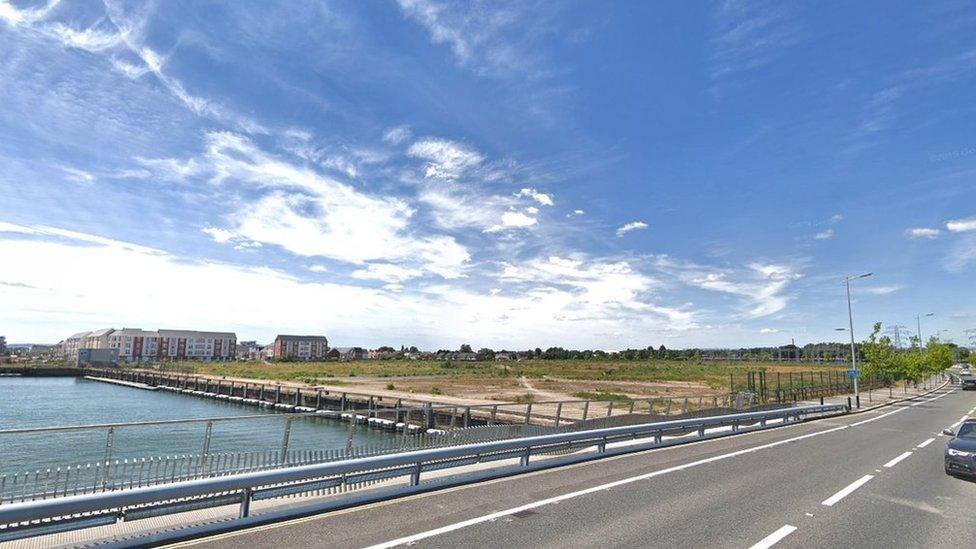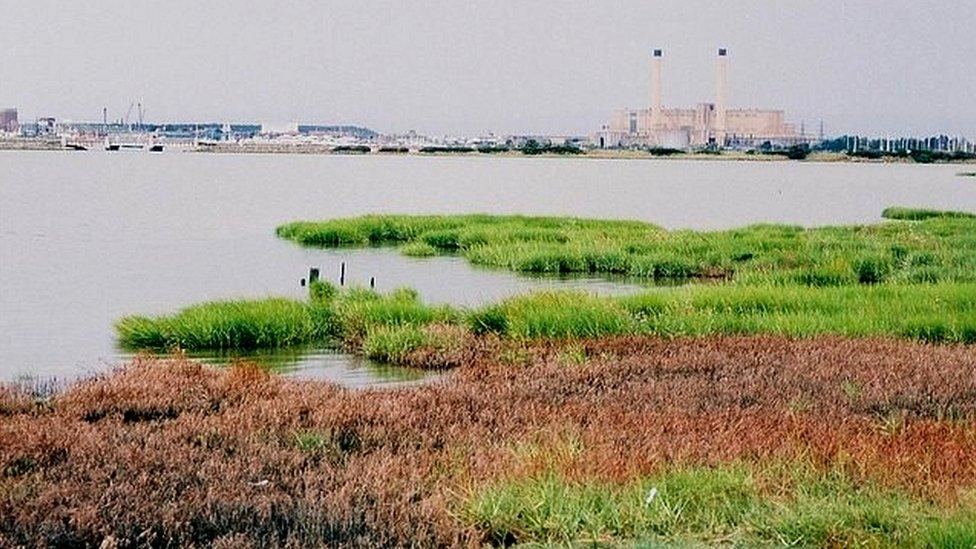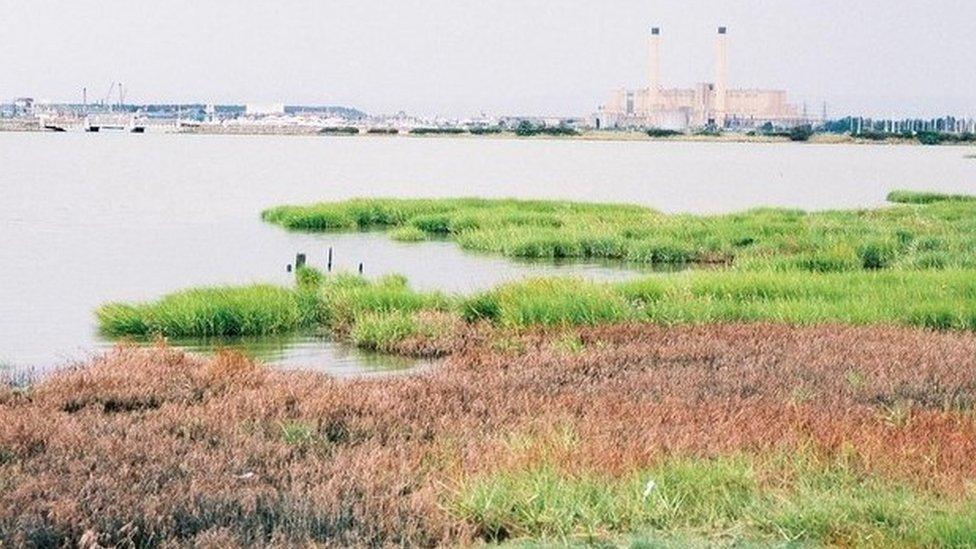Council mulls former Poole power station purchase
- Published

The waterfront site is next to Twin Sails Bridge in Poole Harbour
A council is considering buying a former power station site which was earmarked for housing 20 years ago, in a bid to push the development forward.
Bournemouth, Christchurch and Poole (BCP) Council is considering buying the land at Holes Bay to build 850 homes.
It said it had done everything it could to support the current owners but said it was a "very challenging site".
Cabinet members are being asked to approve £150,000 funding to develop an acquisition strategy.
BCP said its predecessor council, Borough of Poole, had supported the site with infrastructure investment including the Twin Sails Bridge.
The land is designated a Government Housing Zone and has been allocated £5m Dorset Local Enterprise Partnership (DLEP) funding for infrastructure.

The power station, which once stood on the shore of Holes Bay, was demolished in 1992
BCP's environment and community director Kate Ryan said: "We recognise that this is a very challenging site and the council has, over many years, done everything it can to support the landowners in developing this site.
"However, the most recent planning application has stalled and despite efforts from the government, Homes England and the council, the landowners have confirmed that they will not be proceeding with the £5m funding agreement with the council and DLEP to deliver the infrastructure works.
"As a result it is now prudent for the council to consider an alternative approach to secure the funding and bring this site forward for development."
Housing councillor Kieron Wilson said: "Bringing this major brownfield site into public ownership would enable us to provide sustainable good quality homes much sooner, thereby supporting the wider plans to revitalise Poole town centre."
A previous report by Borough of Poole said the area had not been developed because it was deemed financially unviable without intervention.
- Published13 September 2017
